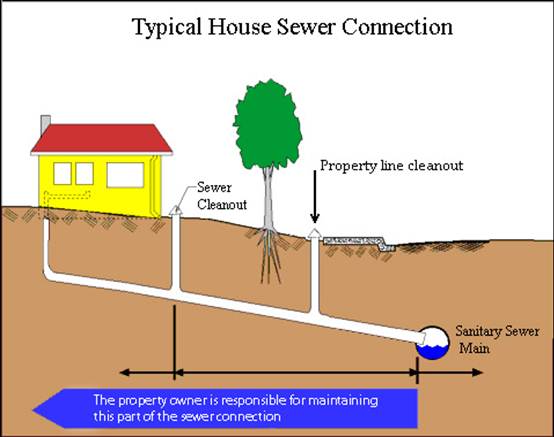Who is Responsible For a Blocked Drain?
The responsibility for dealing with a blocked drain will depend on the place in the sewer or drain that’s actually blocked. The first thing you’ll need to do is establish whether the blockage is on a public sewer or a private drain.
Public or Private?
The pipe that exits your house is called a drain. When a drain from your property joins with a drain from another property, it becomes a sewer. Sewers can be public or private, and the responsibility for unblocking them if a blockage occurs all depends on whether the sewer is public or private. Typically, it’s not always easy to determine, so you might have to make some enquiries.
A public sewer is a sewer that’s been taken on by a sewerage undertaker, usually the local water authority. Once a sewer has been adopted by a water authority, the maintenance and cleaning, plus dealing with any blockages, is their responsibility. The local water authority (or sewerage undertaker) should have plans of all the sewers they are responsible for.
Private Drains
If yours is the only property using a pipe, it’s a ‘private drain’, which means that if it gets blocked, you are solely responsible for dealing with the blockage, and you’ll have to pay for it to be cleared by a private contractor.
Private Sewers
If your property and those of your neighbours all share the same pipe, it’s a ‘private sewer’. If a private sewer gets a blockage, every household that uses it should share the cost of having the blockage cleared. If there’s a dispute over who’s responsible and it’s causing a problem, contact your local Environmental Health Officers (EHOs).
They have the power to serve a notice on everybody using a private sewer, ordering them to have it cleared within 48 hours. If an agreement still hasn’t been reached and the sewer is still blocked, the EHO will make arrangements for a private contractor to clear the sewer and will bill everyone involved – this is called ‘works in default’.
What to Do if your Drain or Sewer is Blocked
If you’re not sure which type of sewer or drain is affected, contact your local EHO. They can come to the property and find out what the problem is, and where, and give you advice on what to do next. They will also be able to tell you whether it’s just your responsibility to clear the blockage, or whether your neighbours need to contribute.
If you know that the blockage is in your private section of drain, rather than in the sewer, you need lift the inspection chamber, if possible, and check whether there’s any backed up sewage. It’s also a good idea to check with the neighbours and see if they have been affected at all, even if the blockage is definitely in your pipe.
If you own the property, you’ll need to call out a specialist drain clearance company if you can’t unblock the drain yourself. If you rent your property, it’s the landlord’s responsibility so call them first if you’re a private tenant. If the landlord or letting agent is unhelpful, call the EHO and they should be able to deal with them on your behalf.



